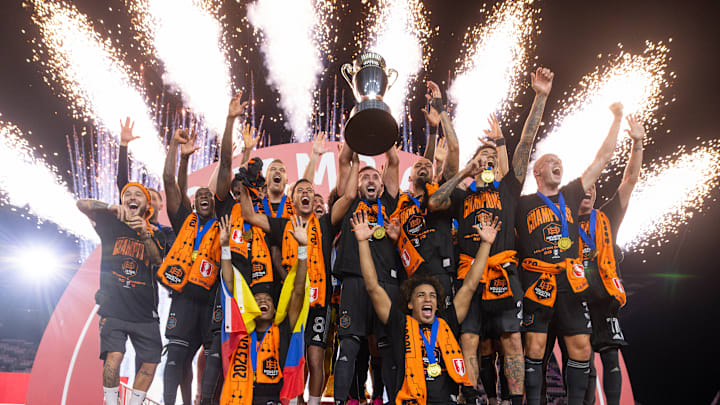See the topics covered in this article
- A Refusal to Share the National Stage
- Developing Tradition Instead of Boycotting
- Impact on True Soccer Fans
- MLS's History of Control in Soccer
- Soccer Needs Collaboration, Not Total Control
The Major League Soccer (MLS) surprised many by announcing its decision to have MLS NEXT Pro clubs represent the league in the 2024 edition of the Lamar Hunt US Open Cup. A choice that seems to have deeper roots than just seeking a quieter competition for elite clubs.
Follow MLS Multiplex on X (Twitter).
A Refusal to Share the National Stage
The clearest interpretation of this change lies in the MLS's reluctance to associate its brand with other national competitions. The league appears to fear that stars of Messi's caliber playing against United Soccer League (USL) teams could generate visibility not only for the player but also for a direct competitor. This stance reveals an attempt to control the image and attention around soccer in the United States, creating an environment where the MLS is the sole star.
By restricting its teams' participation in competitions like the US Open Cup, the MLS may be undermining a valuable growth opportunity for the sport in the country. Soccer in the USA is still in an expansion phase, and the MLS should be leading the development of competitions and leagues instead of trying to monopolize attention.
Developing Tradition Instead of Boycotting
While the US Open Cup may not reach the same level of competitiveness as the MLS, it holds intrinsic value as a traditional and historically relevant competition. Instead of simply opting for a boycott, the MLS could seize the opportunity to enhance, develop, and elevate the US Open Cup. The competition, considered the second oldest in the world (second only to the FA Cup in the UK), has attracted international interest multiple times, contributing to the image of soccer in the USA.
Rather than fearing the exposure of its players to "lesser" competitions, the MLS could use the US Open Cup as a platform to promote the sport at all levels, building a narrative that transcends the boundaries of the main league clubs.
Impact on True Soccer Fans
This decision doesn't just affect fans of MLS clubs. There's a considerable base of fans who genuinely love soccer as a whole, regardless of the team. These fans, often passionate about the diversity and tradition of the sport, will be deprived of the excitement of seeing their local teams face off against the best clubs in the country.
Soccer, as a global phenomenon, thrives on the richness of competitions and the inclusion of all layers of the sport. By alienating this fan base, the MLS is compromising the essence of soccer in the United States.

MLS's History of Control in Soccer
The MLS's decision to control its internal ecosystem is nothing new. In the past, the league faced criticism for its role in the decline of the North American Soccer League (NASL), which ceased operations in 2018. The MLS seems to be repeating the same strategy by boycotting the US Open Cup.
Controlling all facets of soccer in the United States may have long-term consequences. If the MLS continues to stifle competitions that could threaten its position, as it is doing with the US Open Cup, it risks repeating history with the USL in the future. Instead of fostering healthy rivalries and a diverse competitive environment, the MLS may be sowing the seeds for its own isolation.
Soccer Needs Collaboration, Not Total Control
The MLS's decision to have MLS NEXT Pro clubs represent the league in the 2024 US Open Cup seems to reflect a mindset that prioritizes control over collaboration. Soccer in the United States needs a more open approach, where all competitions, regardless of their magnitude, are seen as opportunities for growth and promotion of the sport.
The MLS has the responsibility to lead this process, not just in terms of on-field results but also in building a vibrant and inclusive soccer culture. The US Open Cup is a valuable tradition that could be a crucial piece in this puzzle. It remains to be seen whether the MLS will realize the potential lost by choosing boycott over embracing the richness of soccer in all its forms.
